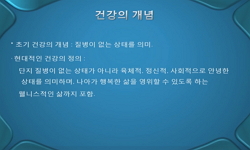The present literature for the economic happy index is Osberg and Sharpe(2002)`s paper which employ OECD countries. In this paper, we try to measure the economic happy index which includes more sophisticated than that paper and is fit for characterist...
http://chineseinput.net/에서 pinyin(병음)방식으로 중국어를 변환할 수 있습니다.
변환된 중국어를 복사하여 사용하시면 됩니다.
- 中文 을 입력하시려면 zhongwen을 입력하시고 space를누르시면됩니다.
- 北京 을 입력하시려면 beijing을 입력하시고 space를 누르시면 됩니다.
https://www.riss.kr/link?id=A60125519
- 저자
- 발행기관
- 학술지명
- 권호사항
-
발행연도
2012
-
작성언어
-
-
주제어
경제행복지수 ; AHP ; 경제안정 ; Economic Happy Index ; AHP ; Well-being
-
KDC
300
-
등재정보
KCI등재
-
자료형태
학술저널
- 발행기관 URL
-
수록면
1-28(28쪽)
-
KCI 피인용횟수
7
- DOI식별코드
- 제공처
- 소장기관
-
0
상세조회 -
0
다운로드
부가정보
다국어 초록 (Multilingual Abstract)
The present literature for the economic happy index is Osberg and Sharpe(2002)`s paper which employ OECD countries. In this paper, we try to measure the economic happy index which includes more sophisticated than that paper and is fit for characteristics in Korean economic situations. Most of all, we try to survey professionals to decide variables in the economic happy index. In addition, we adopt variables of the economic stability such as education, living and housing stability etc. In the methodology, we give weights each variable using AHP analysis but existing papers give the same weights for the variable. Results shows the huge gap between the economic growth and the economic happy index when we use Korean data from the year of 2003 to that of 2010. There we confirm that the economic growth can not guarantee the enhancement of economic happiness. Moreover, improvement of the well-being, reinforcement of education and health, the improvement of income distribution and employment are essential to increase economic happiness.
참고문헌 (Reference)
1 현대경제연구원, "제8회 대한민국 경제적 행복지수 조사결과" (8) : 2011
2 박명호, "스티글리츠 위원회와 경제사회 발전지표" 한국EU학회 14 (14): 95-123, 2009
3 통계청, "사회조사보고서, 각 년도"
4 통계청, "국가자산통계, 각 년도"
5 삼성경제연구소, "경제행복도지수로 본 한국경제" CEO Information 2010
6 LG경제연구소, "Weekly 포커스"
7 Clark, A., "Unhappiness and Unemployment" 104 (104): 648-659, 1994
8 New Economic Foundation, "The Happy Planet Index"
9 Piketty, T., "The Evolution of Top Incomes: A Historical and International Perspective" 96 (96): 200-205, 2006
10 Samuelson, P. A., "The Evaluation of Social Income: Capital formation and Wealth" St. Martin’s Press 1961
1 현대경제연구원, "제8회 대한민국 경제적 행복지수 조사결과" (8) : 2011
2 박명호, "스티글리츠 위원회와 경제사회 발전지표" 한국EU학회 14 (14): 95-123, 2009
3 통계청, "사회조사보고서, 각 년도"
4 통계청, "국가자산통계, 각 년도"
5 삼성경제연구소, "경제행복도지수로 본 한국경제" CEO Information 2010
6 LG경제연구소, "Weekly 포커스"
7 Clark, A., "Unhappiness and Unemployment" 104 (104): 648-659, 1994
8 New Economic Foundation, "The Happy Planet Index"
9 Piketty, T., "The Evolution of Top Incomes: A Historical and International Perspective" 96 (96): 200-205, 2006
10 Samuelson, P. A., "The Evaluation of Social Income: Capital formation and Wealth" St. Martin’s Press 1961
11 Kammann, R., "The Analysis and Measurement of Happiness as a Sense of Well-Being" 15 (15): 91-115, 1984
12 Med Jones, "The American Pursuit of Unhappiness-Gross National Happiness (GNH)-A New Socioeconomic Policy, Executive White Paper" International Institute of Management 2006
13 United Nations in Collaboration with Eurostat, "System of National Accounts 1993" 2 (2): 1993
14 Afsa, C., "Survey of Existing Approaches to Measuring Socio-economic Progress" CMEPSP 2008
15 McDonald, R., "Rethinking Development. Local Pathways to Global Wellbeing" St. Francis Xavier University 2005
16 Stiglitz, J. E., "Report by the Commission on the Measurement of Economic Performance and Social Progress" 2009
17 Okun, A. M., "Potential GNP: Its Measurement and Significance" 1962
18 Beach, W., "Methodology; Measuring the 10 Economic Freedoms”, Chapter 4; Index 2008" Index of Economic Freedom 2008
19 Nordhaus, W. D., "Is Growth Obsolete?" NBER 1-80, 1972
20 Heritage Foundation, "Index of Economic Freedom" 2010
21 Piketty, T., "Income Inequality and Progressive Income Taxation in China and India, 1986~2015" 1 (1): 53-63, 2009
22 United Nations Development Programme, "Human Development Report, 2001" Oxford University Press 2001
23 Braun, A. A., "Gross National Happiness in Bhutan: A Living Example of an Alternative Approach to Progress" Wharton School, University of Pennsylvania 2009
24 World Bank, "Expanding the Measure of Wealth: Indicators of Environmentally Sustainable Development, In Environmentally Sustainable Development Studies and Monographs, Series, 17" World Bank 1997
25 Samuelson, P. A., "Economics, 6th ed" McGraw-Hill 1964
26 Samuelson, P. A., "Economics, 14th ed" McGraw-Hill 1992
27 Fraser Institute, "Economic Freedom of the World Report"
28 Easterlin, R. A., "Does Economic Growth Improve the Human Lot?, In Nations and Households in Economic Growth: Essays in Honor of Moses Abramovitz" Academic Press, Inc 1974
29 Fleurbaey, M., "Beyond GDP: Is There Progress in the Measurement of Individual Well-Being and Social Welfare?, revised version of the paper Individual Well-being and Social Welfare: Notes on the Theory" 2008
30 Diener, E., "Assessing Subjective Well-Being: Progress and Opportunities" 31 (31): 103-157, 1993
31 Osberg, L., "An index of Economic Well-being for Selected OECD countries" 48 (48): 291-316, 2002
32 Sharpe, A., "A Survey of Indicators of Economic and Social Well-being" CPRN 2005
동일학술지(권/호) 다른 논문
-
- 한국국제경제학회
- 김경수 ( Kyung Soo Kim )
- 2012
- KCI등재
-
- 한국국제경제학회
- 최수경 ( Soo Kyung Choi )
- 2012
- KCI등재
-
비협조적 국제정책경쟁환경에서 선진국 연구개발보조의 경제성장효과
- 한국국제경제학회
- 김상춘 ( Sang Choon Kim )
- 2012
- KCI등재
-
지역별 고용격차 결정요인: 산업구조의 비대칭적 특화를 중심으로
- 한국국제경제학회
- 박성익 ( Sung Ik Park )
- 2012
- KCI등재
분석정보
인용정보 인용지수 설명보기
학술지 이력
| 연월일 | 이력구분 | 이력상세 | 등재구분 |
|---|---|---|---|
| 2027 | 평가예정 | 재인증평가 신청대상 (재인증) | |
| 2021-01-01 | 평가 | 등재학술지 유지 (재인증) |  |
| 2018-01-01 | 평가 | 등재학술지 유지 (등재유지) |  |
| 2015-01-01 | 평가 | 등재학술지 유지 (등재유지) |  |
| 2011-01-01 | 평가 | 등재학술지 유지 (등재유지) |  |
| 2009-01-01 | 평가 | 등재학술지 유지 (등재유지) |  |
| 2007-01-01 | 평가 | 등재학술지 유지 (등재유지) |  |
| 2005-01-01 | 평가 | 등재학술지 유지 (등재유지) |  |
| 2002-01-01 | 평가 | 등재학술지 선정 (등재후보2차) |  |
| 1999-07-01 | 평가 | 등재후보학술지 선정 (신규평가) |  |
학술지 인용정보
| 기준연도 | WOS-KCI 통합IF(2년) | KCIF(2년) | KCIF(3년) |
|---|---|---|---|
| 2016 | 0.42 | 0.42 | 0.49 |
| KCIF(4년) | KCIF(5년) | 중심성지수(3년) | 즉시성지수 |
| 0.52 | 0.45 | 0.872 | 0.13 |




 KCI
KCI KISS
KISS







